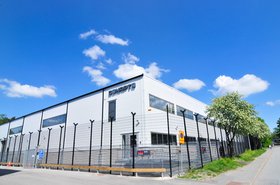The data center is key in driving business in a modern enterprise today. It is what provides your company with the computing power, storage units and networking resources needed to support a variety of demanding applications and digital services.
The role of the data center today hinges on three key things:
- The attributes of your data center (such as its performance, reliability, speed, and security) influence not only supporting functions of your organization, rather its very core business.
- The need for scalable and modern workloads driven by new technologies such as AI, IoT and Edge computing.
- How and where you choose to operate your data center has a direct impact on both your spending and your carbon footprint.
The International Energy Agency (IEA) Electricity latest report shows a vast growth in data center energy consumption. By 2026, projections indicate 1,000 TWh annually, equivalent to five percent of global electricity usage, up from the previous benchmark of two percent. This exponential rise is fueled by booming digitalization, AI, and blockchain utilization.
Historically, enterprises have built, equipped, and operated their own data centers according to need – both capacity needs and on different geographical locations.
While this approach has qualities in terms of being tailor-made for your specific operations – the infrastructure lacks the scalability, flexibility and sometimes even cloud connectivity required to gain and keep a competitive advantage in today’s fast-paced markets.
Furthermore, the investments related to constructing your own data center are highly capital-intensive, which makes it difficult for some companies to pursue such a strategy. Against this background, the reasons for the fast-paced growth of the data center colocation industry becomes easy to grasp. Data center colocation is a considerably more accessible, scalable, and cost-efficient solution for your facility.
When using data center colocation, you consume the physical data center ‘as a service’. The often-used expression ‘let your business focus on what it does best’ applies well here. You get the peace-of-mind knowing your ground-bounded infrastructure has a secured uptime and you leave the matters of cooling, electricity supply and physical security to a partner who is an expert in exactly that.
Six reasons to use data center colocation
Data center colocation is an impactful IT service as it helps businesses solve problems or achieve results that might be too expensive or complex for the business to accomplish on its own.
In practice, there are six key drivers for using data center colocation: scalability, cost, compliance, performance, service reliability and sustainability.
1) Scalability
Building and operating your own data center is essentially building yourself into a corner with little room for flexibility. With new demanding workloads like AI and the need for high density deployments and liquid cooling, it will be nearly impossible to keep up managing this on your own. You will need a partner that can help you create a scalable environment to future proof your demand.
2) Cost
A self-owned data center is expensive, both to build and to maintain. When using colocation, companies can make savings by not investing in costly constructions of new data centers. Costs are moved from CAPEX to OPEX — and operational costs can also be reduced as maintenance and real-estate costs are no longer your responsibility.
3) Compliance
The trend is clearly moving in the direction of the user and customer integrity being key for how and where we store data. If your business manages personal data, sensitive data or if you’re a public agency, data center colocation will come in handy as a more controllable substitute for e.g. cloud solutions.
4) Performance
Data centers are a crucial asset, especially for Edge data center deployments. Users today require unprecedented levels of performance and speed for their digital services and with a colocation data center you can easily establish deployments anywhere you might need – to meet user expectations.
5) Geographical redundancy
A single traditional data center is a single-point-of-failure vulnerability for your business. A severe power outage, fire, flood, earthquake, or any other disaster can have devastating consequences for an enterprise, relying on a single self-owned data center. With a colocation provider, you can deploy services in geographically separated – yet interconnected – data centers which drastically decrease that vulnerability.
6) Sustainability
Managing your own data center and trying to keep up on sustainability is both costly and complex. Lots of things happening, new regulations, new technologies as well as compliance and certifications to keep track of. This can be minimized working with the right colocation provider in the right place. Using green and fossil free electricity, 100 percent renewables, reuse of heat to district heating and a continued work on energy efficiency is part of what a colocation provider works with every day.
Data center colocation is a modern, flexible and sustainable option for any company running parts or their entire infrastructure on the ground. When choosing a provider, there are a list of things to consider, but once you’ve equipped your company with a data center colocation solution that fits your needs – it really is the smartest choice in the long run.
More from Conapto
-

Sponsored Vertiv, Conapto, and Fever Energy join forces to introduce dynamic grid support in Sweden
Enhancing sustainability, adding capacity and contributing to a more stable grid
-

Sponsored Data centers: The cornerstone of our modern society
Appreciating the data centers' contribution to modern society
-

Greening capacity: Lessons from the Nordics
As a region synonymous with sustainability, what can we learn from the Nordics?

